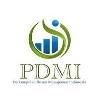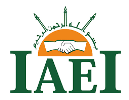The Effect of Innovation to Increase Growth Islamic Banking: Comparison of Islamic Banking Growth in Indonesia and Pakistan
Abstract
This article aims to see and compare the development of Islamic banking in Pakistan and Indonesia, with innovation indicators as the primary comparative justification. This study uses quantitative justification on available secondary data related to the growth of Islamic banking and qualitative justification that compares the impact of innovation on the development of these banking. The essential findings are that Islamic banking in Indonesia has very rapid growth compared to Pakistan, which incidentally has operated Islamic banking for a longer time. There are several reasons for these findings, including the population and distribution of Indonesia's territory, which is much larger than Pakistan. However, today's banking challenges are more widely accepted by Indonesian Islamic banking, where technological factors heavily influence growth. Therefore growth occurs by adapting innovations in banking organizations in Indonesia. Innovation is carried out by applying technology in banking business processes and strategic actions, such as the merger of Islamic banks to form the strength of Indonesia's most prominent Islamic bank.
Keywords: Indonesian islamic banking, innovation, islamic banking, pakistan islamic banking
Full Text:
PDFReferences
Retrive from https://www.northeastern.edu. 2019.
Retrive from ojk.go.id. 2022.
Retrive from State Bank Of Pakistan: https://www.sbp.org.pk. 2022.
Apriyanti, H. W. "Model Inovasi Produk Perbankan Syariah di Indonesia". Economica: Jurnal Ekonomi Islam, 9(1), 2018, pp.83-104. doi: https://dx.doi.org/10.21580/economica.2018.9.1.2053
Beck, T., Demirgüç-Kunt, A., & Merrouche, O. Islamic vs. conventional banking: Business model. 2013.
Dharma, B. "Pengantar Manajemen Sains Untuk Pengambilan Keputusan". (F. Lubis, Penyunt.) Medan: FEBI UIN-SU Press. 2021.
Dharma, B., & Putri, J. "Pelatihan Manajerial pada Usaha Tenun UD. Datoek Laksamana di Tanjung Pura, Sumatera Utara". Prioritas: Jurnal Pengabdian Kepada Masyarakat, Volume 04, Nomor 01, 2022, pp.1-7.
Dharma, B., & Syarbaini, A. "Perancangan Mitigasi Risiko Krusial Pada UMKM Keripik di Sumatera Utara Dengan Pendekatan Transdisipliner". Jurnal Ad-Deenar: Jurnal Ekonomi dan Bisnis Islam, vol: 6/no: 01, 2022, pp.107-123.
Giuda, G., Grecchi, M., Villa, V., Locatelli, M., & Pellegrini, L. "Engineering and Management of Information Modelling Requirements". TEMA, Technologies Engineering Materials Architecture, Vol. 5 No. 2, 2019, pp.137-147.
Gunawan, C. I., Mukoffi, A., & Handayanto, A. J. "Model Strategi Perbankan Syariah Menghadapi Persaingan Perbankan Di Era Masyarakat Ekonomi ASEAN". Malang: UMM. 2017. Diambil kembali dari http://research-report.umm.ac.id/index.php/research-report/
Harahap, A. T. "Tantangan Dan Peluang Lembaga Keuangan". Jurnal Bisnis Corporate, 2017.
"Innovation in 2015: The Most Innovative Companies 2015". 2015. Diambil kembali dari Boston Consulting Report: https://www.bcg.com
Irimias, T., & Pop, Z.-C. "Comparative Approach Upon Organizational Culture Model". Journal of Public Administration, Finance and Law, 2022, pp.154-167.
Islamic Business Unit. Law No. 21. 2008.
Khan, M., & Bhatti, I. "Development in Islamic banking: a financial risk-allocation approach". The Journal of Risk Finance, 9(1), 2008, pp.40-51. doi:10.1108/15265940810842401
Khan,, M., & Bhatti, I. "Islamic banking and finance: on its way to globalization". Managerial Finance, 34(10), 2008, pp.708-725. doi:10.1108/03074350810891029
Kholis, N. "Potret Perkembangan dan Praktik Keuangan Islam di Dunia". Millah: Journal of Religious Studies, 2017, pp.1-30. doi:https://doi.org/10.20885/millah.vol17.iss1.art1
Otoritas Jasa Keuangan. "Modul Keuangan Syariah". Jakarta: Otoritas Jasa Keuangan. 2017.
Pesendorfer, J., & Lehner, O. "Islamic Banking and Finance as an Ethical Alternative: A Systematic Literature Review". ACRN Oxford Journal of Finance and Risk Perspectives, 2016, pp.42-64.
Sinulingga, S. "Metode Penelitian". Medan: USU Press. 2017.
Sugiyono. "Metodologi Penelitian Manajemen". Bandung: Alfabeta. 2016.
Tilev, S. "Knowledge and Belief: A Comparative Approach". Beytulhikme An International Journal of Philosophy, 2022, pp. 91-106.
Ulum, F. "Inovasi Produk Perbankan Syariah di Indonesia". Al-Qanūn, 17(1), 2014, pp.33-59.
Undang - Undang RI No.7.
Villalobos, C., Morel, M., & Treviño, E. "A Comparative Approach to Notions of Good Citizenship. Good Citizenship for the Next Generation". IEA Research for Education, vol 12. Springer, Cham, 2021, pp.51-66. doi:https://doi.org/10.1007/978-3-030-75746-5_4
Waluyo, A. "Kepatuhan Bank Syariah Terhadap Fatwa Dewan Syariah Nasional Pasca Transformasi Ke Dalam Hukum Positif. INFERENSI: Jurnal Penelitian Sosial Keagamaan, 10(2), 2016, pp.517-538. doi:https://doi.org/10.18326/infsl3.v10i2.517-538.
Yozika, F. A., & Khalifah, N. "Pengembangan Inovasi Produk Keuangan dan Perbankan Syariah dalam Mempertahankan dan Meningkatkan Keupasan Nasabah". Edunomika, 2017, pp.100-107.
DOI: http://dx.doi.org/10.30829/jombi.v4i02.13864
Refbacks
- There are currently no refbacks.
Copyright (c) 2022 Ade Pranajaya, Budi Dharma







